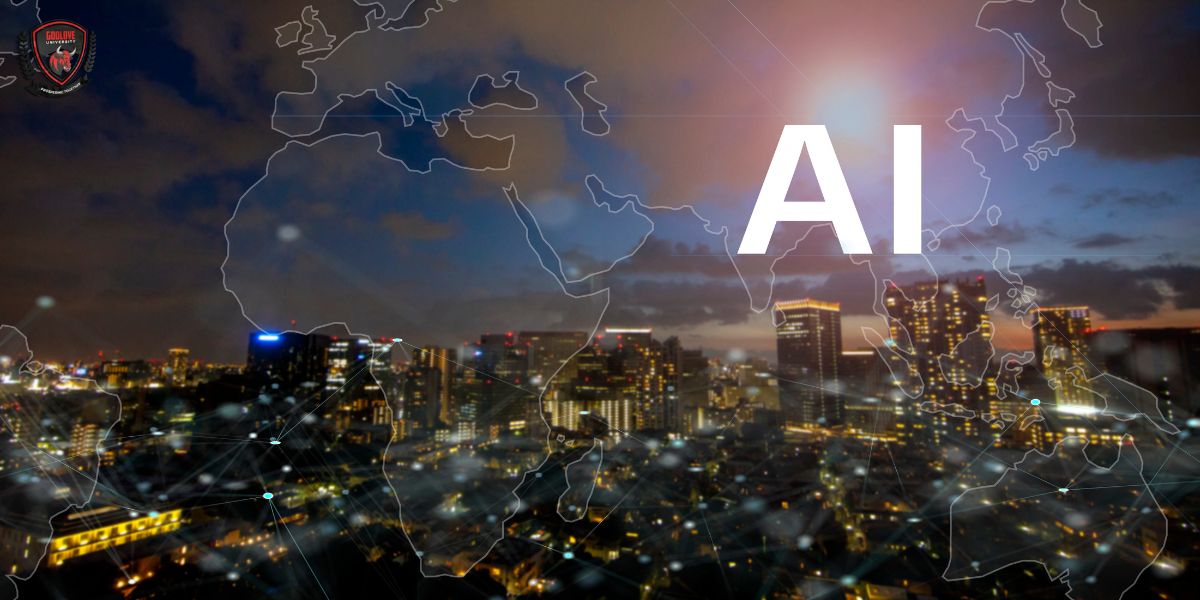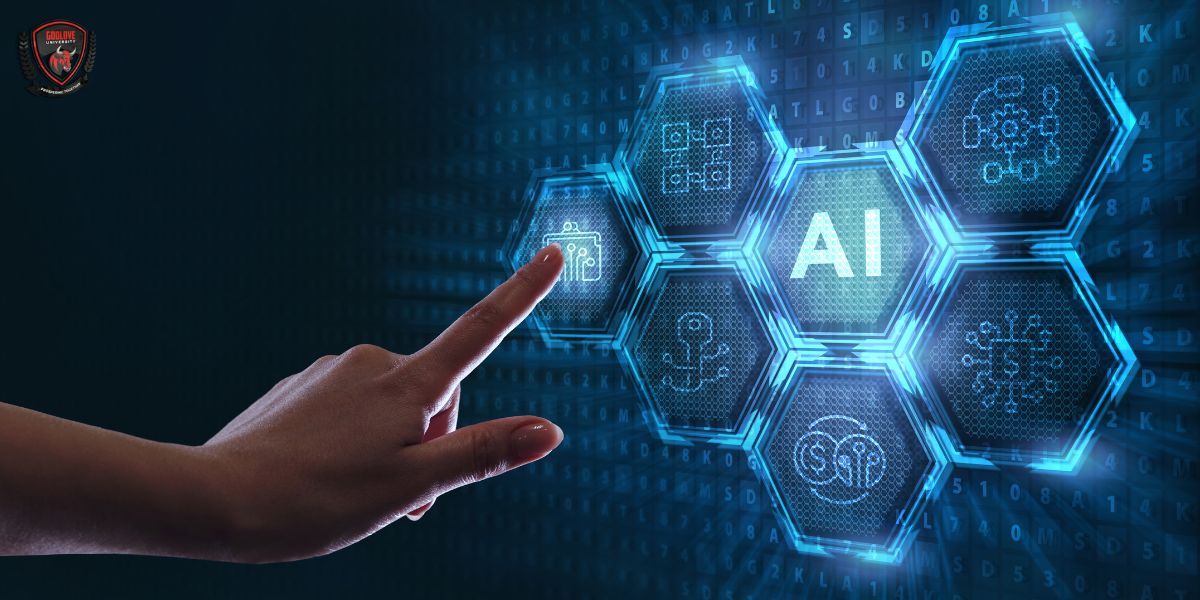In the age of rapid technological advancement, artificial intelligence (AI) stands as a transformative force, reshaping the very fabric of our society. From healthcare to education, manufacturing to finance, AI’s influence is omnipresent. In this detailed exploration, we delve into the profound effects of AI on society, shedding light on its diverse applications and, in particular, its impact on the dynamic world of forex trading.
Understanding the Essence of AI: At its core, AI refers to the development of computer systems capable of performing tasks that typically require human intelligence. This includes learning, reasoning, problem-solving, and perception. The integration of AI into various sectors has resulted in increased efficiency, improved decision-making processes, and the creation of innovative solutions.

AI in Society: A Transformative Force
Healthcare Revolution: AI has revolutionized the healthcare industry with applications ranging from diagnostic tools to personalized medicine. Machine learning algorithms analyze vast datasets, enabling quicker and more accurate disease detection and treatment recommendations. The impact of AI in healthcare isn’t limited to diagnosis; it extends into treatment as well. AI algorithms are being used to create personalized treatment plans based on an individual’s genetic makeup and medical history, taking into account various factors that a human doctor might not easily synthesize. The result is a more effective and personalized healthcare experience that can save lives and reduce costs. Experts estimate that the medical and pharma sectors could save billions of dollars due to these healthcare efficiencies.
Education and Learning: AI-driven educational platforms personalize learning experiences, adapting to individual needs. Intelligent tutoring systems and interactive educational tools empower students with tailored lessons, fostering a more engaging and effective learning environment.
Automation in Manufacturing: In the industrial landscape, AI-driven automation streamlines manufacturing processes. Smart factories leverage AI to optimize production, minimize errors, and enhance overall efficiency, contributing to economic growth.
Financial Technologies (Fintech): The financial sector has undergone a paradigm shift with the integration of AI. From fraud detection to customer service, AI algorithms are instrumental in enhancing security, improving user experiences, and providing predictive analytics.

AI in Forex Trading: A Game-Changer The forex trading industry, known for its dynamic nature, has experienced a significant impact from AI technologies. Here are key aspects to consider:
Algorithmic Trading: AI-powered algorithms analyze market trends, historical data, and news in real-time. This enables traders to execute high-frequency trades, respond swiftly to market changes, and optimize trading strategies.
Predictive Analytics: AI models utilize predictive analytics to forecast currency movements based on a multitude of factors. This empowers traders with valuable insights, helping them make informed decisions and manage risks effectively.
Risk Management: AI enhances risk management by continuously monitoring market conditions and identifying potential risks. This proactive approach allows traders to adjust their portfolios in response to changing market dynamics, minimizing potential losses.
Enhanced Decision-Making: Traders benefit from AI’s ability to process vast amounts of data, providing a comprehensive overview of market conditions. This facilitates more informed decision-making, reducing the reliance on intuition alone.
The Downside: Potential Job Losses
One of the major challenges to be faced in this context is job displacement. AI’s ability to automate repetitive, routine tasks could potentially make several jobs obsolete. From manufacturing lines to data entry roles, AI’s efficiency is a double-edged sword. Industry reports suggest that we could see millions of jobs disappearing, replaced by algorithms and robots that can work around the clock without tiring.
The Upside: Creation of New Roles
However, the impact of AI on workforce evolution is not all doom and gloom. The counterargument focuses on the types of jobs that AI will create. While automation might take away specific roles, the rise of AI is also fostering new career paths that didn’t exist a decade ago, such as data scientists, AI ethicists, and human-machine interaction designers. These jobs will demand skills that are uniquely human, such as creativity, critical thinking, and empathy. Moreover, AI could also take over the more dangerous or monotonous aspects of jobs, allowing humans to focus on more fulfilling tasks.

As AI continues to evolve, its impact on society becomes increasingly pronounced. From healthcare to finance, education to manufacturing, the transformative power of AI is reshaping industries across the globe. In the forex trading arena, AI’s ability to analyze data, predict market trends, and enhance decision-making has positioned it as a valuable tool for traders seeking a competitive edge in the dynamic world of currency exchange. As we navigate this era of technological revolution, embracing the potential of AI is not just an option—it’s a necessity for staying ahead in an ever-changing landscape.









4 Responses
I read an interesting article the other day. Google’s new AI ‘Gemini’ was tested in the markets and it came out profitable. Do you think there will ever come a time when AI is able to take over the forex markets completely or is the human element still valid?
Thank you for sharing your thoughts and bringing up an intriguing topic! Google’s AI, ‘Gemini,’ indeed showcases the remarkable potential of artificial intelligence in the financial markets.
The question of whether AI will completely take over the forex markets is a thought-provoking one. While AI has demonstrated its ability to analyze vast amounts of data and make profitable decisions, the human element remains crucial. Here’s why:
Market Dynamics and Unforeseen Events:
Forex markets are influenced by a myriad of factors, including geopolitical events, economic releases, and unforeseen occurrences. The ability of AI to adapt to unexpected situations may be limited compared to human intuition.
Emotional Intelligence:
Humans possess emotional intelligence, a factor that can impact decision-making. In times of market volatility or uncertainty, the ability to understand and navigate emotions becomes vital, something that AI may struggle to replicate.
Ethical Considerations and Regulation:
The ethical aspects of trading, compliance with regulations, and considerations of fairness are deeply rooted in human judgment. AI lacks the ethical and moral compass that humans bring to decision-making.
However, it’s essential to acknowledge the transformative impact of AI on the financial industry. Integrating AI into trading strategies can enhance efficiency, accuracy, and adaptability. The optimal scenario might involve a harmonious collaboration between AI and human traders, each leveraging their unique strengths.
As technology continues to advance, it will be fascinating to observe the evolving relationship between AI and the human element in forex trading. The future likely holds a blend of cutting-edge technologies and human expertise, ensuring a dynamic and responsive approach to the ever-changing world of financial markets.
Feel free to share your further thoughts or questions—we appreciate the insightful discussions our community brings to the table!
This article is very useful. It outlines the future we are headed for.
I hope we can still make money through forex trading and let it be simplified.
If that is the case, would it still affect employment?
This could leave a strange impact on the global financial markets and also impact peoples lives.
I am not sure i am confident in the changes the world has to offer by making everything automated.
Just a thought.
Regards,
Thank you for taking the time to share your thoughts on our article. We appreciate your engagement and the valid concerns you’ve raised.
The future of automated technologies, including advancements in forex trading, is indeed a topic that sparks various discussions. Your concern about the potential impact on employment and the broader global financial markets is well-founded.
While automation has the potential to streamline processes and make certain tasks more efficient, it is essential to carefully consider its implications. Automation in forex trading, for instance, could lead to increased efficiency and accessibility, but it may also raise questions about job displacement and the need for new skill sets.
Your skepticism about the changes the world is experiencing is a sentiment shared by many. It’s crucial to approach these advancements with a balance of optimism and caution, ensuring that progress benefits society as a whole.
We will continue to explore and discuss these topics on our blog, providing insights and perspectives to help our readers navigate the evolving landscape of technology and finance.
If you have any specific questions or if there are particular aspects of this topic you’d like us to delve deeper into, please feel free to let us know. Your feedback is valuable, and we aim to address the concerns and interests of our audience.
Thank you for being a part of our community.